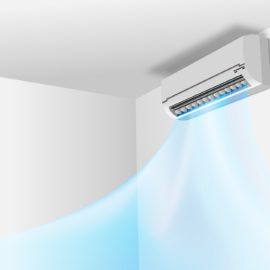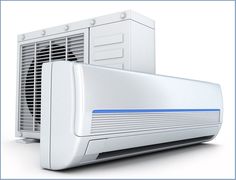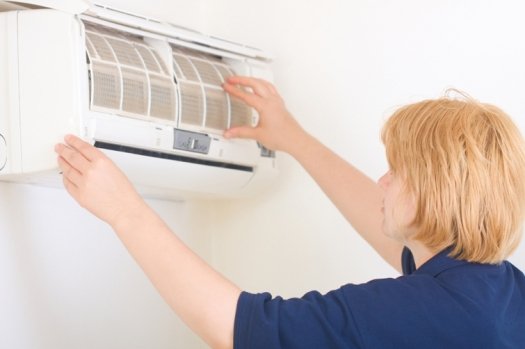
The air conditioning filter is one of the most important air conditioning parts in the air conditioning system. Without it, your air conditioning system would be dirty, and the air you breathe would be filled with pollutants. All air conditioning parts, from the duct-work to the air conditioning refrigerant, need the air conditioning filter to be clean and replaced to ensure you’re getting the very best in central air conditioning.
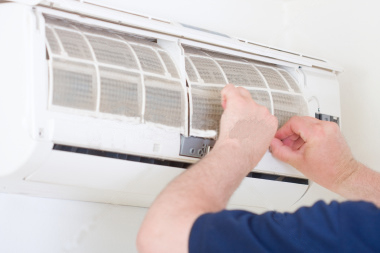
If an air conditioning filter is left dirty, over time, it can lead to higher energy costs and short
Equipment life due to all the air conditioning parts relying on each other. One can not work without the other. Overall, your heating and cooling will not be as effective, and you will need to invest in more air conditioning repair and air conditioning maintenance.
An air conditioning filter should be changed every month or every two months for home air conditioning systems and every couple of weeks for specific commercial or industrial air conditioning since it’s running almost 24 hours a day, seven days a week. Doing this as a routine in your monthly chores and not waiting until you see dust matted on the air conditioning filter will ensure you and your family the very best health as well as a smooth running air conditioning system. Dust particles can not always be seen so even if you see a little dust on the air filter, clean it as you usually would.
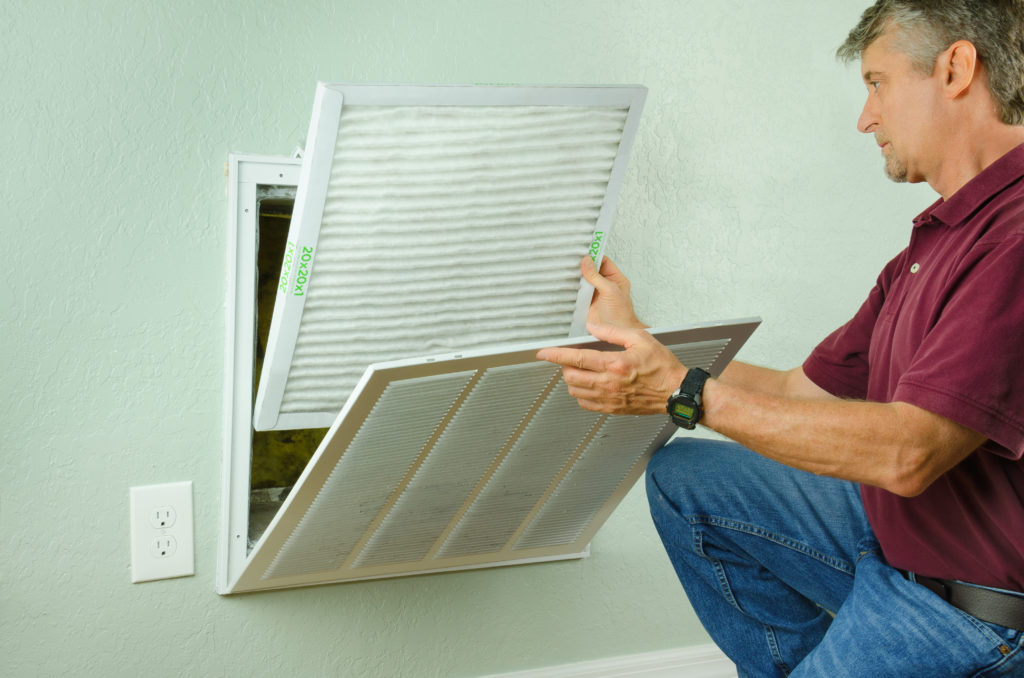
Since there are a variety of air conditioning filters, how quickly one gets blocked versus another depends on the brand – most air conditioning filters are sized 1 ½ to 2 square feet for each ton of capacity for a home or commercial property.
You can judge a filter’s ability to clean by using MERV ratings – Minimum Efficiency Reporting Value- which is a rating of how efficient an air conditioning filter is from 1-12. The higher the score, the more effective it is at removing particles such as animal dander, pollen, dust, mold and other allergens, and the better the protection for your air conditioning equipment. Most air conditioning filters screen out particles measuring from 3 to 10 microns in size.
The common types of air conditioning filters are:
Conventional fiberglass disposable filters (1″ and 2″): These are common in most homes and small industrial air conditioners and commercial air conditioning systems. Since they are disposable and have an adhesive coating that traps the dust, you should not clean the filters. This may damage the filter’s ability to remove particles by damaging the adhesive coating and the underlying meshwork. They are both not as effective as other types of filters even though they are lower in cost.
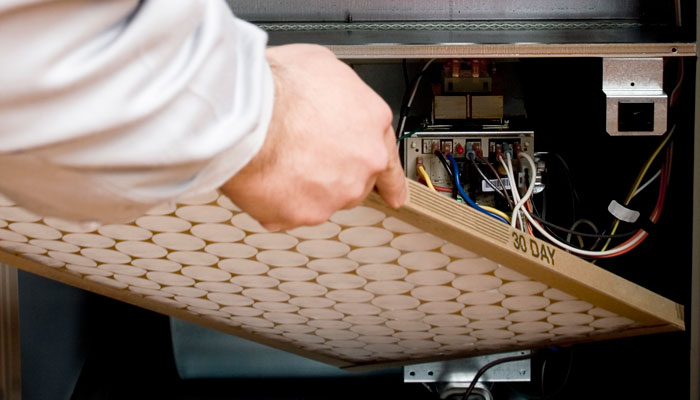
Pleated fiberglass disposable filters (1″ and 2″): The 1″ are generally used in many residential and commercial settings and are made of materials that can vary in the effectiveness. Usually, they are more densely woven to increase the efficiency of removing dirt. These have a larger surface area to lead to increased trapping of particles as compared to conventional filters. They must be specified for your air conditioning system, or this can lead to increased demand on your air conditioning components. Thereby, a mismatch can be counterproductive on the health of the air conditioning system and possibly lead to higher air conditioning maintenance and service cost. You should check with the air conditioning manufacturer as to the appropriate type of pleated filter for your system. A filter spray can also be applied after the cleaning and drying of the air conditioning air filter.
Electrostatic filters: Different in design and performance, since there are so many varieties, it isn’t very easy to determine which is the most efficient. They are commonly advertised as allergy-free air conditioning filters. These filters also come in the 1″ and 2″ sizes. Air that moves through the filter creates a static charge that collects any dust in the filter. They may require more cleaning and more blower power.
Electronic filters: Connected to an electrical power source and usually wall-mounted, automatic filters come with a pre-filter that can collect larger particles and only need to be cleaned every six months.
Carbon filters: These filters contain carbon that can control any odour problems you might have within the air conditioning system. They can also be useful in homes with pets.
Air Conditioning Filter Installation
When placing the appropriate air conditioning filter into the system, the filter should be placed in the correct direction as indicated by the arrow located on the side or face of the filter. Air should flow in the proper direction, which is in the same direction as the arrows. This allows the filter to work appropriately, as the air exits the filter in the most reinforced part of the filter.
The air conditioning filter should fit tightly. A perfect seal is necessary to prevent unfiltered air from entering and damaging your air conditioning system. Without a perfect seal and appropriate sizing, the filter is useless. Additionally, the non-conventional filters may have higher efficiency and may not fit your system. This should be checked with an air conditioning company, contractor, or air conditioning supply company.
For all your air conditioning services, browse through Peninsula Heating, Cooling & Electrical. They specialise in residential and commercial heating, cooling and electrical services.


